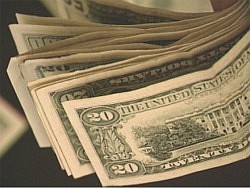Q. A New Year Resolution for me is to understand, manage and improve my financial affairs. Does BBB have suggestions for me to consider?
A. Yes, for many consumers, among the top New Year's Resolutions, are to lose weight and to get their finances in shape. However, when it comes to managing their finances, most will admit it's easier said than done. To help consumers get on the road to a better financial future, the Better Business Bureau suggests that first you start making a plan to suit your needs.
Many financial experts will list paying off debt, saving money and spending less as priorities for improving personal finances. In 2017, to reach your financial goals, frugality seems to be the operative watchword.
Here are 10 tips from the BBB that may help get your finances in shape:
- Put together a budget and stick to it. Create a budget that is easy to figure out and follow. Consumers often fail when they become overwhelmed and frustrated by the constraints their budget puts on them.
- Live within your means. That's the point of establishing a budget resist the urge to budget for something if you cannot immediately pay for it.
- Stop impulse buying. Think before you buy, step back take a breath and remember what your ultimate goal is.
- Take stock of where your money is going. Get reacquainted with your finances. Collect your credit card and bank statements from the past year and take note of where you went overboard. Also, check the status of all your financial accounts, and clearly understand your assets, debts, and monthly cash flow.
- Use credit cards wisely. Bring your balances down to zero every month. Have one card you use for everyday purchases paying that balance monthly and another for revolving debt.
- Get out of debt. Pay off the highest interest balances first, while making minimum payments on other debts.
- Build an emergency fund. Be prepared for the worst-case scenario. Some experts suggest a fund of at least $1,000; others recommend three to six months' worth of expenses.
- Save. If you are not currently saving money, start with $10 per week. Based on what you are currently saving, try and increase your overall savings by 15 percent. Be sure to enroll and participate in an employer-sponsored 410K program or individual retirement account.
- Give to charity. Donate one hour's worth of pay, or volunteer one or two hours of personal time to charity. Donating to charity may also have a positive impact on how much you pay in taxes in the current year.
Jim Winsett is president of the Better Business Bureau in Chattanooga

